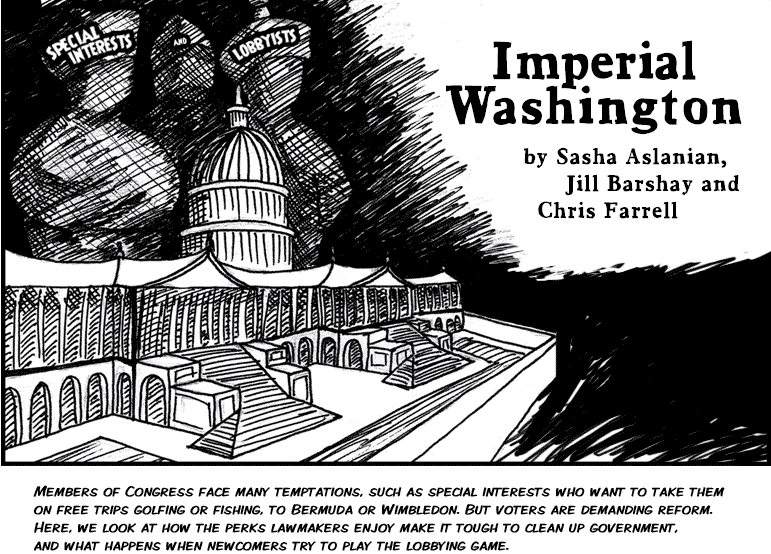|
|
|
|
|
Download the radio hour or read the transcript.
Congressional Perks
So what perks do members of Congress actually get?
We Are the Web
Part of the battle over the future of the Internet was waged on the Internet. Blogs and viral videos helped rally grassroots support among the public to sign Internet petitions and call lawmakers. Here's the story behind one viral video that debuted in August of 2006.
The Growth of Lobbying in Washington
A building boom and rising restaurant prices were the first clues, says one long-time Washington political observer.
Reporter's Notebook
Congressional Quarterly reporter Jill Barshay reflects on the increasing sophistication of lobbying in the information age.
Links and Resources
Credits
|
|



